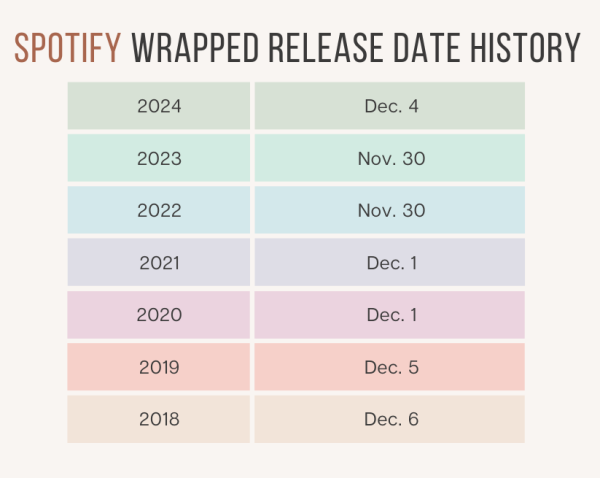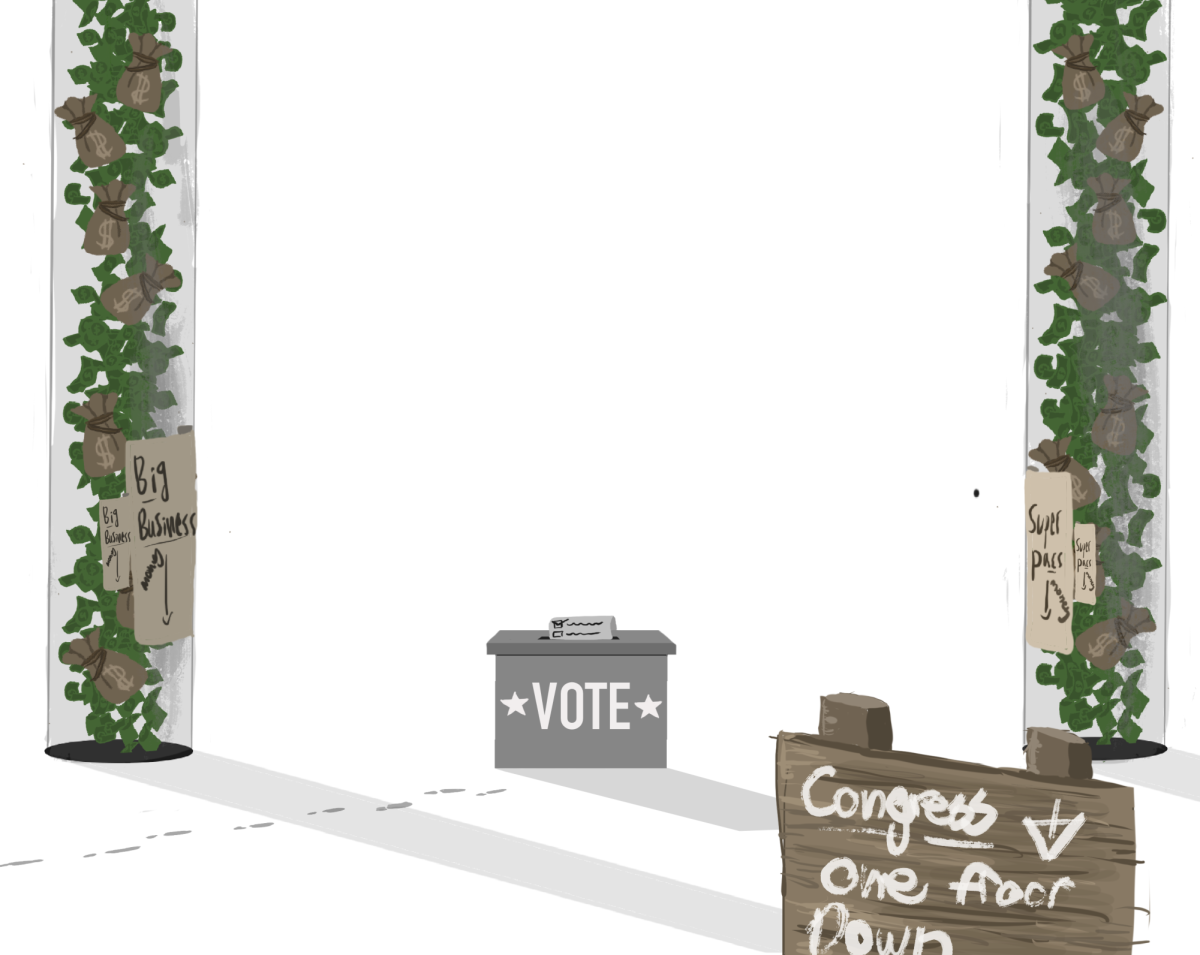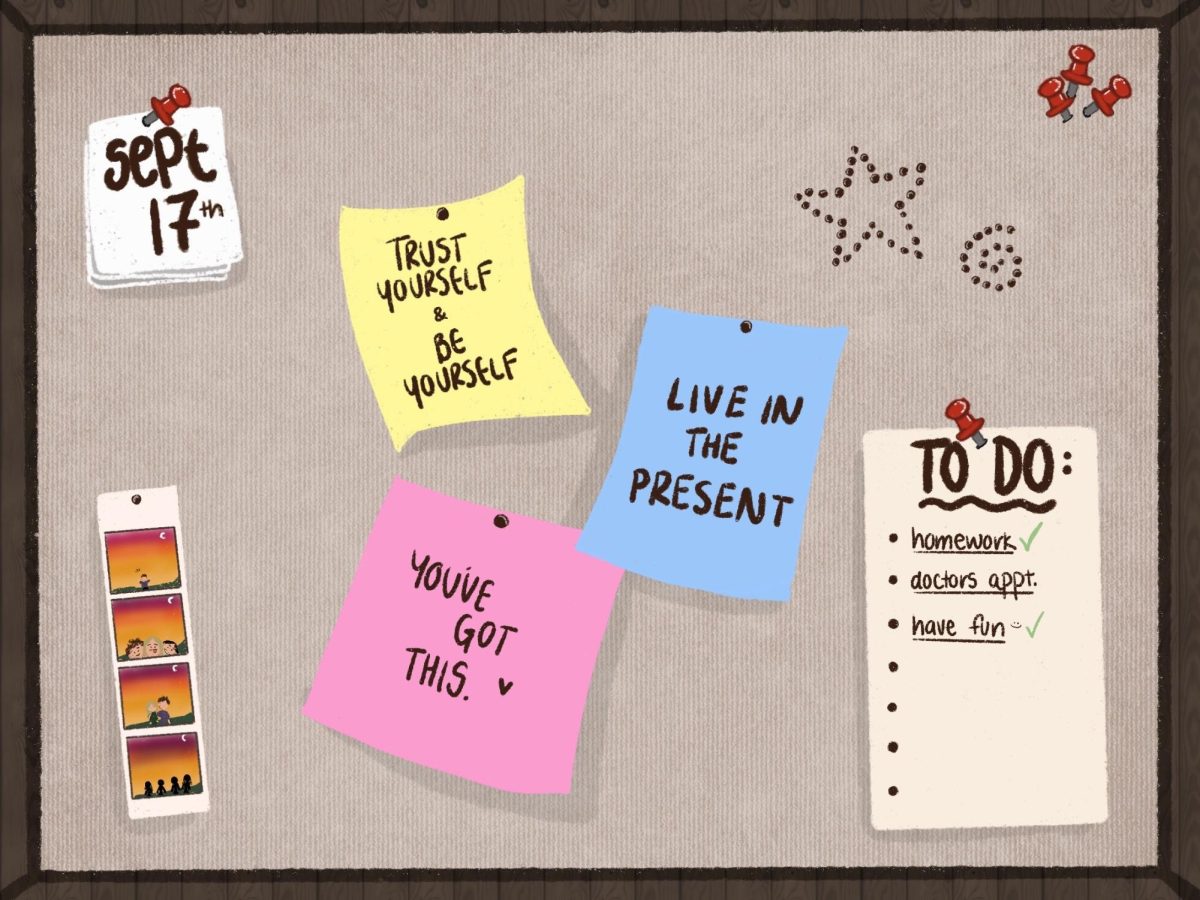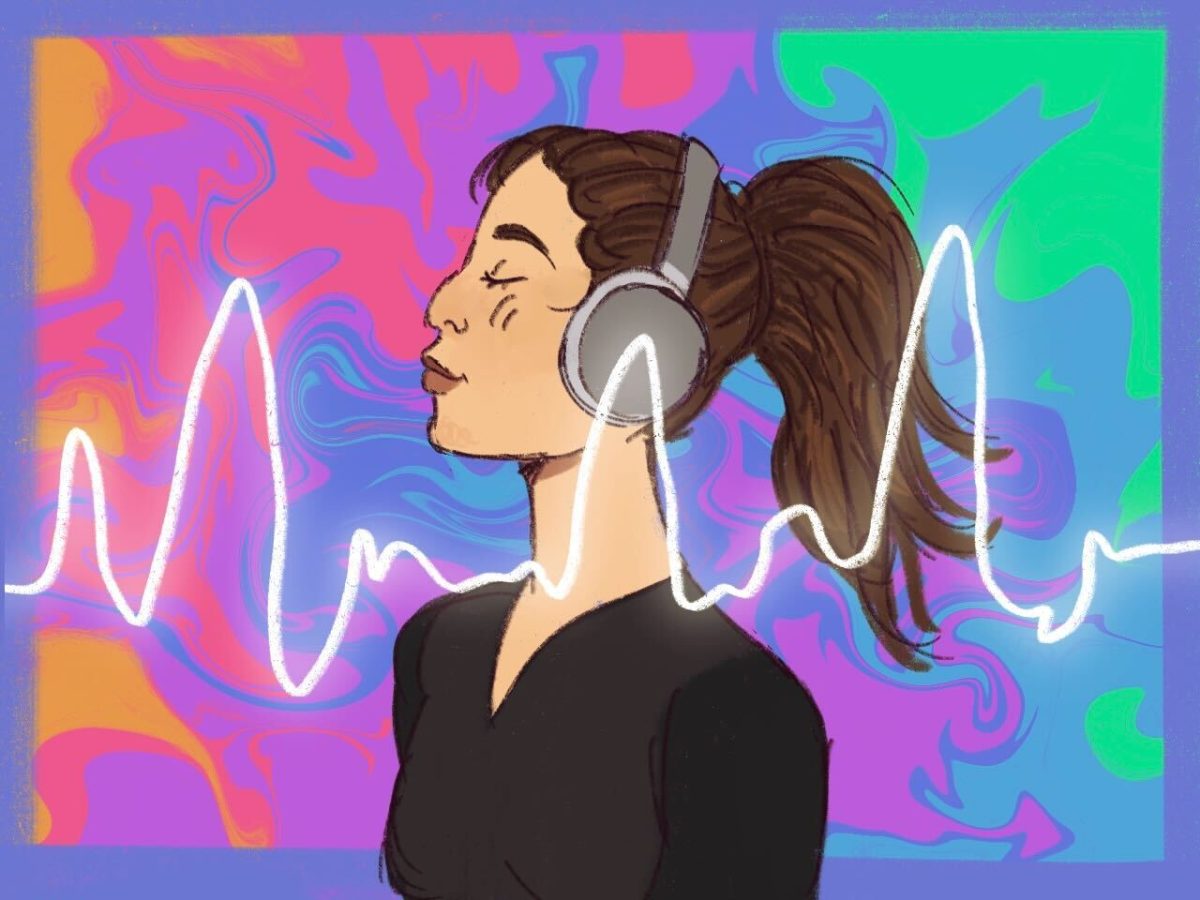What happens when over-personalized algorithms guess wrong?
Spotify learned this answer firsthand with its highly anticipated — and highly disappointing — annual Wrapped.
This year’s Wrapped came out Dec. 4, breaking the past two year’s precedent of releasing Nov. 30, and left most of the people I talked to frustrated and anxious, awaiting the metrics of what they’ve listened to this year with no knowledge of when it would be released. To make matters worse, Spotify poked this bear several times with a barrage of teasers regarding its impending arrival.

This late release compounded with their odd implementation of Google’s Notebook LM, equipped with an AI podcast utilizing their premade DJ feature and AI playlist. Spotify claims this supply of AI tools — which had no demand from its listeners — makes your Wrapped “even more about you.”
Listen to 30 seconds of your personalized podcast and you’ll likely disagree with that statement.
If you’ve opened Spotify in the past three years, odds are high that you’ve seen its “made for you” mixes and playlists based on collected listening data, tailor-made features which first debuted in 2021. However, it’s equally likely that you don’t agree with the accuracy of their curation.
Wrapped thrives on its promise of individualization. By tying users’ identities to their most-played songs, artists, and genres, it creates a story that feels deeply personal, and while this isn’t an inherently bad thing, the vast majority of users end up taking the annual release a little more seriously than they should.
For many, Spotify Wrapped is more than just a playful recap — it’s a way to solidify identity in a digital age.
This raises questions about authenticity. Wrapped markets itself as a celebration of individuality, but how much of it is truly ours?
This year, I haven’t spoken with a single person who reported that their Wrapped felt accurate to their true listening habits.
That’s because it was collected by biased algorithms, and now, by unreliable AI.
Spotify’s algorithm doesn’t just observe our habits; it shapes them.
This deeply personal relationship with listeners’ musical artists can only be achieved through constant monitoring and accumulation of user data, compiled from every interaction with the platform: from what you save, share, or skip to what Spotify deems as people with similar listening habits, otherwise known as your listening demographic.
Auto-play, curated playlists like the daylist, and AI-driven recommendations all nudge us toward specific listening patterns.
Because of this, Wrapped can feel less like a reflection of our choices and more like a product of Spotify’s design. It’s a feedback loop: the platform influences what we hear, then feeds that data back to us as if it were entirely our doing.
So often when I hit the shuffle button on my liked songs, Spotify simply regurgitates the same set I’ve been hearing over and over, and although I’ll skip the tracks I don’t want to hear, those seconds are logged into the platform’s curation algorithm.
This results in the algorithm thinking it’d be a good idea to play those songs for me, one more time; I don’t.
By blending personalization with heavy algorithmic influence, Wrapped tells a story. But it’s a story we didn’t fully write.
Fun and engaging? Sure, but perhaps more Spotify’s creation than our own.
Wrapped is no longer a celebration of individuality, but an example of over-personalization gone wrong, where the “personalized” experience feels anything but personal.
The dissonance between what Wrapped claims to represent and what users experience is glaring.
Wrapped is meant to be a reflection on the music that defined our year. Instead, it felt like nothing more than an AI-fueled funhouse mirror, leaving it distorted, impersonal, and at times, completely off the mark.
When human beings are reduced down to data points, the story behind those statistics is lost. And when it’s done with inaccurate AI, any sense of community, belonging, and identity that could’ve been gained, is now warped.
When Wrapped gets it wrong, it’s not just an algorithmic hiccup — it’s a disruption of how we see ourselves and our relationship to music.
Music is inherently human; it’s a deeply personal, emotional art form. For many — myself included — it’s a way to process emotions, build memories, and connect with others. By relying heavily on AI algorithms, Spotify risks reducing music to cold, impersonal data points.
When you strip away the human aspect, the essence of what makes music meaningful vanishes.
Wrapped’s stumble is emblematic of a larger trend in tech-driven consumerism: the increasing reliance on AI to simulate personal connection.
While AI can undoubtedly enhance experiences, its failures highlight the need for a balance between technology and human oversight.
For a feature like Wrapped, which thrives on authenticity and emotional resonance, that balance is critical.
Spotify’s Wrapped 2024 has proven that even with cutting-edge AI, it’s possible to miss the mark entirely. Perhaps next year, the company will listen more closely — not just to our playlists, but to the people behind them.









